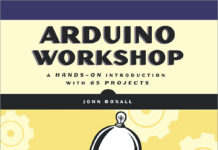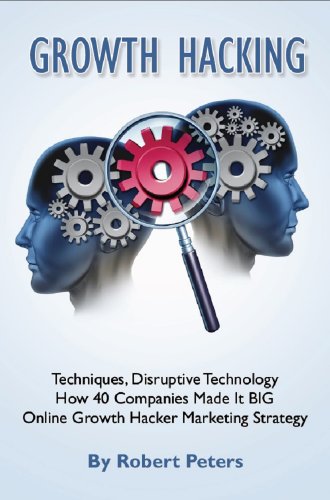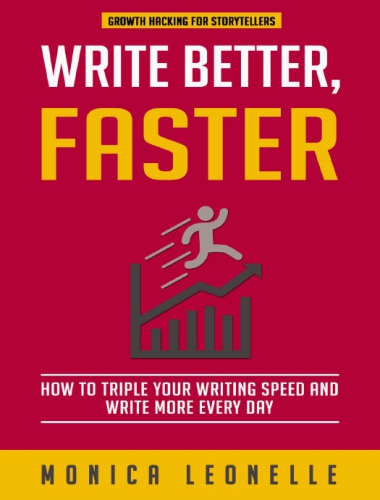| Book Name: | India 2017 |
| Category: | Competitive Exam Materials |
| Free Download: | Available |
India 2017

Download India Year Book 2017 PDF – English Version
Download India Year Book 2017 PDF – English Version for UPSC Civil Services, APPSC and TSPSC Groups Exams
India Year Book 2017 – A Reference Annual – is a comprehensive digest of country’s progress in different fields.The book deal with all aspects of development-from rural to urban, industry to infrastructure, science and technology, art and
culture, economy, health, defence, education and mass communication.
The sections on general knowledge, current affairs, sports and important events, are a must read for comprehensive understanding of these fields with its authenticity of facts and data, the book is a treasure for students, researchers and academicians.
Chapters Inside India Year Book – All Chapters List Given below .
- Land and the People
- National Symbols
- Polity
- Agriculture
- Culture and Tourism
- Basic Economic Data
- Commerce
- Communications and Information Technology
- Defence
- Education
- Energy
- Environment
- Finance
- Corporate Affairs
- Food and Civil Supplies
- Health and Family Welfare
- Housing
- India and the World
- Industry
- Justice and Law
- Labour
- Mass Communication
- Planning
- Rural and Urban Development
- Scientific and Technological Developments
- Transport
- Water Resources
- Welfare
- Youth Affairs and Sports
- States and Union Territories
- Diary of National Events
- General Information
Download India Year Book 2017 PDF from here: Download
How to read India Year Book 2017 for UPSC, APPSC and TSPSC Exams?
Chapter 1: Land and the People
- This chapter is all about physiography of India and has Demographic terminologies and Census 2011 data (latest). This is a very important chapter from prelims as well as mains point of view.
Chapter 2: National Symbols
- This is a very important chapter and direct questions can be expected from this one.
Chapter 3: The Polity
- This chapter elaborates executive part of the government with rights and basic features of the Constitution. This chapter can be avoided from prelims point of view however, it can be referred to for mains.
Chapter 4: Agriculture
- This chapter details programmes and policies related to agriculture in India, different agricultural sectors and recent initiatives. Just reading the introduction part and about new programmes and policies launched by GOI is enough.
Chapter 5: Art and Culture
- A detailed study of this topic is important, especially from point of view of mains exam.
Chapter 6: Basic Economic Data
- This chapter details statistical institutions in India. A simple analysis of trends is enough.
Chapter 7: Commerce
- This chapter is irrelevant for prelims. However, it is of prime importance from mains point of view.
Chapter 8: Communications
- This chapter comprises of three sections of communication forms i.e. Posts, Telecommunications and Information Technology. The topic of Cyber security is of prime importance.
Chapter 9: Defence
- This chapter elaborates on security scenario of India, defence undertakings, training for defence services, etc. Direct questions can be expected from this chapter in both prelims and main exam.
Chapter 10: Education
- This chapter covers the policies related to elementary, secondary and higher education system in the country and can be referred to from mains point of view only. New policies are of special importance and need to be studied in detail.
Chapter 11: Energy
- This chapter discusses the conventional and nonconventional energy sector in the country. Study this chapter with geographic references in mind and also study in detail about the various initiatives in renewable energy sector. This chapter is important for both prelims and main exams.
Chapter 12: Environment
- This is a very important chapter from both prelims and main exam point of view and requires a detailed analysis.
Chapter 13: Finance
- This chapter can be given a general reading.
Chapter 14: Corporate Affairs
- This is a very important chapter and needs to be studied thoroughly.
Chapter 15: Food and Civil Supplies
- This one needs to be studied selectively with main focus on food security issues and welfare schemes related to it.
Chapter 16: Health and Family Welfare
- Perhaps the most important chapter from the perspective of UPSC CSE exam, this needs to be studied by heart.
Chapter 17: Housing
- Not a very important chapter from the point of view of main exams.
Chapter 18: Indian and the World
- Through study required for mains as well as prelims.
Chapter 19: Industry
- Get through this chapter for writing good essay in mains.
Chapter 20: Justice and Law
- Do study this chapter in full detail for both the exams.
Chapter 21: Labour
- This one is important from the perspective of writing an essay.
Chapter 22: Mass Communication
- Important only for prelims.
Chapter 23: Planning
- This chapter required in depth study.
Chapter 24: Rural Development
- A very important chapter from the view of both the papers.
Chapter 25: Scientific and Technological Developments
- A very important topic that requires detailed study.
Chapter 26: Transport
- Study with geographic context for better understanding and relevance.
Chapter 27: Water Resources
- This is an important chapter from prelims perspective.
Chapter 28: Welfare
- This chapter discusses welfare schemes for the SC/ ST/ OBC/ Minorities/ Women/ Children and needs to be given utmost importance from the perspective of both the papers.
Chapter 29: Youth Affairs and Sports
- Study in detail.
Chapter 30: States and Union Territories
- This topic requires strict study and memorization from the view of both mains and prelims.
Chapter 31: Diary of National Events
- This topic can be ignored in case of shortage of time.
Chapter 32: General Information
- This chapter needs to be given just a reading.
Download India 2017 PDF Book
Related Results : aero india 2017 dates,aero india 2017 venue,calendar 2017 india with holidays,festivals of india 2017,in india 2017india 2017,
Related More Books
See More POST On : Competitive Exam Materials









![[PDF] Draw Buildings and Cities in 15 Minutes Draw Buildings and Cities in 15 Minutes pdf](https://www.freepdfbook.com/wp-content/uploads/2021/06/Draw-Buildings-and-Cities-in-15-Minutes-218x150.jpg)








![[PDF] Digital Image Processing An Algorithmic Introduction Using Java Digital Image Processing An Algorithmic Introduction Using Java](https://www.freepdfbook.com/wp-content/uploads/2022/06/Digital-Image-Processing-An-Algorithmic-Introduction-Using-Java.jpg)




![[PDF] 43 Years JEE ADVANCED + JEE MAIN Chapterwise & Topicwise Solved Papers 43 Years JEE ADVANCED (1978-2020) + JEE MAIN Chapterwise & Topicwise Solved Papers Physics PDF](https://www.freepdfbook.com/wp-content/uploads/2022/03/43-Years-JEE-ADVANCED-1978-2020.jpg)

![[PDF] Problems in Physical Chemistry for JEE (Main & Advanced) Problems in Physical Chemistry for JEE (Main & Advanced) Free PDF Book Download](https://www.freepdfbook.com/wp-content/uploads/2022/03/Problems-in-Physical-Chemistry-for-JEE-Main-Advanced.jpg)
![[PDF] Engineering Physics (McGraw Hill)](https://www.freepdfbook.com/wp-content/uploads/2021/05/bafc8c2685bb6823a9c56134f7fba5df.jpeg)

![[PDF] Engineering Chemistry By Shashi Chawla](https://www.freepdfbook.com/wp-content/uploads/2022/05/Theory-And-Practicals-of-Engineering-Chemistry-By-Shashi-Chawla-free-pdf-book.jpeg)
![[PDF] Chemistry: An Introduction to Organic, Inorganic & Physical Chemistry Chemistry: An Introduction to Organic, Inorganic & Physical Chemistry](https://www.freepdfbook.com/wp-content/uploads/2022/04/Chemistry-An-Introduction-to-Organic-Inorganic-Physical-Chemistry.jpg)
![[PDF] Essentials of Physical Chemistry Essentials of Physical Chemistry Free PDF Book by Bahl](https://www.freepdfbook.com/wp-content/uploads/2022/04/Essentials-of-Physical-Chemistry-bahl.jpg)
![[PDF] Biological control of plant-parasitic nematodes: soil ecosystem management in sustainable agriculture Biological control of plant-parasitic nematodes: soil ecosystem management in sustainable agriculture](https://www.freepdfbook.com/wp-content/uploads/2022/05/Biological-control-of-plant-parasitic-nematodes-soil-ecosystem-management-in-sustainable-agriculture.jpg)
![[PDF] Human Anatomy: Color Atlas and Textbook Human Anatomy: Color Atlas and Textbook Free PDF Book](https://www.freepdfbook.com/wp-content/uploads/2022/05/Human-Anatomy-Color-Atlas-and-Textbook.jpg)
![[PDF] Concepts of Biology Book [Free Download]](https://www.freepdfbook.com/wp-content/uploads/2022/05/Concepts-of-Biology.jpg)
![[PDF] Essentials of Biology [Free Download] Essentials of Biology Free PDF BOok Download](https://www.freepdfbook.com/wp-content/uploads/2022/05/Essentials-of-Biology-Free-PDF-Book-Downlaod.jpg)
![[PDF] Human Biology Book [Free Download]](https://www.freepdfbook.com/wp-content/uploads/2022/05/PDF-Human-Biology-Book-Free-Download.jpg)
![[PDF] Majid Hussain Geography Book Geography of India for Civil Services and other Competitive Examination](https://www.freepdfbook.com/wp-content/uploads/2022/05/Geography-of-India-for-Civil-Services-and-other-Competitive-Examination-8th-ediion-pdf-book-free.jpg)
![[PDF] Differential Calculus Booster with Problems and Solutions Differential Calculus Booster with Problems and Solutions Free PDF Book](https://www.freepdfbook.com/wp-content/uploads/2022/03/Differential-Calculus-Booster-with-Problems-and-Solutions.jpg)